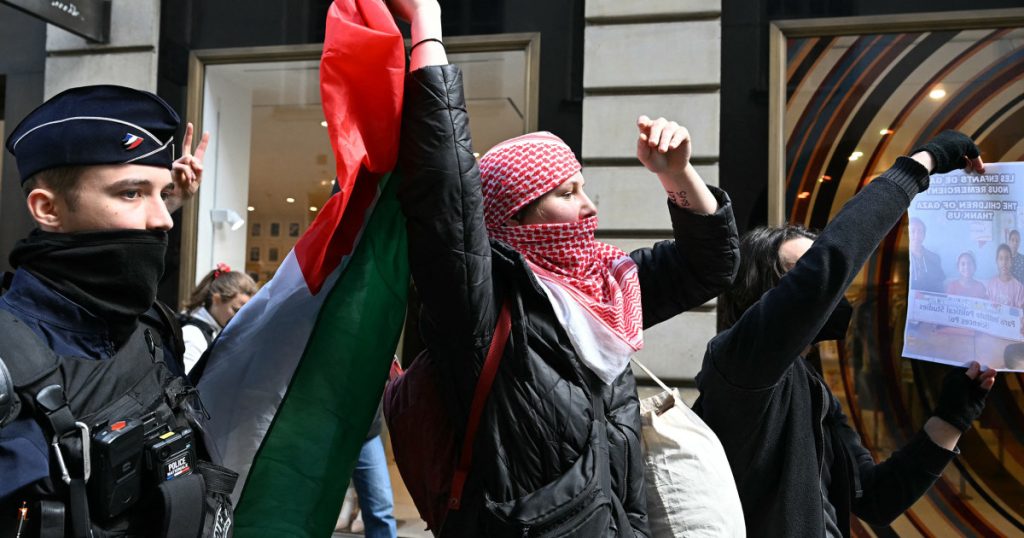Amidst growing protests in the United Kingdom, students at Leeds University launched their own encampment in support of a two-way arms embargo on Israel. Inspired by similar demonstrations at U.S. universities, students like Ella Ward feel empowered to raise their voices for Palestine despite potential consequences such as arrest or expulsion. While Leeds University has not taken a stance on the encampment, other U.K. universities like University College London and the University of Warwick have also seen pro-Palestinian demonstrations emerge.
Not all students are in support of these protests, with concerns being raised about safety and the impact on academic studies. President of the Union of Jewish Students, Edward Isaacs, emphasizes the importance of creating a welcoming and inclusive environment for Jewish students on campus amidst escalating tensions. French students, in comparison, are experiencing more peaceful protests, with a strong emphasis on debate and dialogue. Accusations of antisemitism have marred some U.S. protests, although Jewish participants deny these claims, asserting that criticisms of Israel’s actions in Gaza should not be silenced.
Elisa Lin, a 21-year-old student at Sciences Po, feels caught in the middle of the escalating tensions on campus, where pro-Palestinian and pro-Israel demonstrations have stifled open dialogue. She has launched a petition calling for peaceful discourse, an end to blockades on campus, and consequences for those occupying buildings illegally. Lin condemns the terrorist attacks by Hamas while also opposing the policies of Netanyahu in Israel. Her petition has gained over 1,170 signatures, reflecting a desire for a more inclusive and respectful dialogue amidst the ongoing conflict.
In Australia, demonstrations at the University of Sydney saw tensions rise as pro-Palestine and pro-Israel supporters clashed. Despite differing opinions, the presence of demonstrators calling for the freedom of Gaza highlights the global response to the conflict in the Middle East. Universities around the world are becoming battlegrounds for diverging perspectives on the Israel-Hamas conflict, with students advocating for open dialogue, inclusivity, and peaceful resolutions.
As protests continue to spread across campuses globally, it is clear that students are engaging with complex and sensitive political issues that have far-reaching implications. The calls for peace, dialogue, and understanding amidst the conflict in the Middle East highlight the importance of fostering respectful discussions and creating safe spaces for all students. While tensions may rise and differing opinions clash, the voice of the student population remains a powerful force in shaping the narrative and advocating for change. The challenges faced by universities in managing these protests underscore the need for thoughtful leadership and a commitment to upholding principles of free speech and inclusivity.


